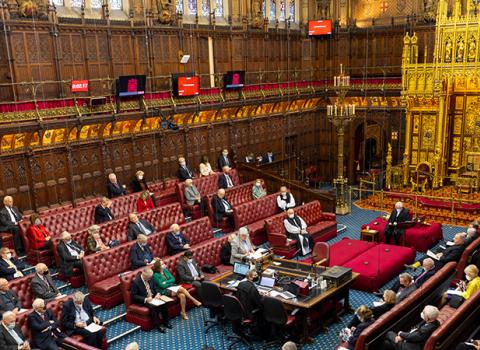Science suppliers are raising their prices in the UK to adjust to the steep drop in the value of the pound following the vote to leave the EU.
On Monday US life sciences firm Thermo Fisher Scientific, which sells reagents, told customers it is increasing prices by about 5 per cent from 1 November.
The firm's trading is denominated in US dollars, so sterling's 17 per cent devaluation against the US currency since the Brexit vote in June means that UK prices must inevitably rise.
Scientists are beginning to feel the effects. “In my research I do a lot of molecular biology and biochemistry, for which I need a substantial amount of reagents, plastic ware, enzymes and other wet lab supplies,” said Anne Osterrieder, lecturer in biology and science communication at Oxford Brookes University. “A price increase means our research budgets won't go as far now.”
Paula Salgado, lecturer in macromolecular crystallography at Newcastle University, said the increase on Fisher products translates to roughly an extra £1,000 for her lab.
“That will mean we'll be able to afford fewer items than before. To give you an estimate, we get approximately £15,000 - £20,000 a year for consumables in my current grant. Over the past two years, I spent nearly that much on Fisher products, so this price increase will have a clear effect,” she said.
Finding a replacement supplier for such specialised products is not an option, Salgado added.
Similarly, reagent supplier Newmarket Scientific has informed customers its prices are going up by 10 per cent.
“I run a core facility. For me this simply means I have to raise prices for our customers,” said Daniel Swan, head of platforms and pipelines at the Earlham Institute, a supplier of genomics services.
If the pound regains value, Newmarket Scientific promises to drop prices again. But in the meantime, Swan said the company will push up the cost of sequencing genomes.
“It impacts all our sequencing platforms and our library preparation and sequencing reagents costs – we have a large installation of Illumina platforms and when they adjust their prices this is going to be financially very significant for us,” Swan said. US sequencer manufacturer Illumina did not respond to a question about its price plans.
Higher prices could depress demand for UK scientific services
“Customers may choose to send their samples elsewhere if we become uncompetitive in the global supplier space. [And] when this price hike hits capital equipment purchases, it is going to be particularly painful on some of our more high-end £500,000-plus platforms,” said Swan.
The price rises also mean researchers will have to scale back studies. “They will have to do fewer experiments or [reduce] samples, potentially negating critical aspects of experimental design [and] statistical power,” Swan said.
As a junior lecturer working towards securing the first big grant, Osterrieder is on a tight budget. She relies heavily on advanced microscopy facilities and a few specialist software licenses, so any future price hikes for these services will hamper her career progression.
“I will need to sit down and go through my past and future spending to figure out where price increases are likely to occur, and which ones would affect my research plans the most,” she said.
The pound’s slump has translated into price increases in other services used by researchers. Earlier this week, Microsoft announced its Azure cloud services will go up 22 per cent from January next year, while its Office software will go up by 13 per cent.




 A unique international forum for public research organisations and companies to connect their external engagement with strategic interests around their R&D system.
A unique international forum for public research organisations and companies to connect their external engagement with strategic interests around their R&D system.